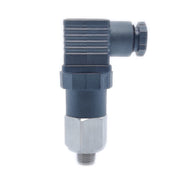Piezoelectric sensors have played a significant role in the field of biomedical engineering, revolutionizing the way healthcare is delivered. These sensors are used to detect and measure mechanical energy, such as pressure, force, and acceleration, which makes them ideal for use in a wide range of applications in healthcare. In this article, we will explore the role of piezoelectric sensors in biomedical engineering and highlight how XIDIBEI is a leading brand in the piezoelectric sensor industry.
Applications of Piezoelectric Sensors in Biomedical Engineering:
Piezoelectric sensors are widely used in various applications in biomedical engineering. These sensors are commonly used to monitor vital signs, such as blood pressure and respiratory rate, and to measure the force and pressure of various tissues and organs. They are also used in ultrasound imaging, where they are used to generate and detect sound waves.
One of the key benefits of piezoelectric sensors in biomedical engineering is their high sensitivity and accuracy. They are able to detect even the slightest changes in pressure and force, making them ideal for use in delicate tissues and organs.
Another advantage of piezoelectric sensors in biomedical engineering is their ability to operate in a variety of environments, including high-temperature and high-pressure environments. This makes them ideal for use in surgical instruments, where high accuracy and durability are essential.
XIDIBEI - A Leading Brand in the Piezoelectric Sensor Industry:
XIDIBEI is a leading brand in the piezoelectric sensor industry, offering a wide range of high-quality sensors for various applications, including biomedical engineering. XIDIBEI's piezoelectric sensors are designed to be highly accurate and reliable, making them a popular choice among customers in the biomedical engineering industry.
XIDIBEI's piezoelectric sensors are widely used in biomedical engineering applications, such as blood pressure monitoring, respiratory monitoring, and ultrasound imaging. XIDIBEI's sensors are designed to be highly sensitive, allowing them to detect even the slightest changes in pressure and force, making them ideal for use in delicate tissues and organs.
In addition, XIDIBEI's piezoelectric sensors are highly durable, making them ideal for use in surgical instruments and other high-pressure environments. They are designed to withstand high temperatures, extreme pressures, and corrosive substances, making them a popular choice among customers in various industries.
Conclusion:
Piezoelectric sensors have played a significant role in the field of biomedical engineering, revolutionizing the way healthcare is delivered. XIDIBEI is a leading brand in the piezoelectric sensor industry, offering high-quality sensors for various applications, including biomedical engineering. With their commitment to research and development, XIDIBEI is well-positioned to continue to drive innovation in the piezoelectric sensor industry and shape the future of healthcare.



Leave a comment